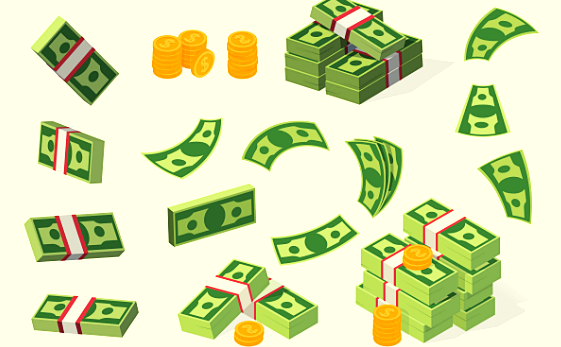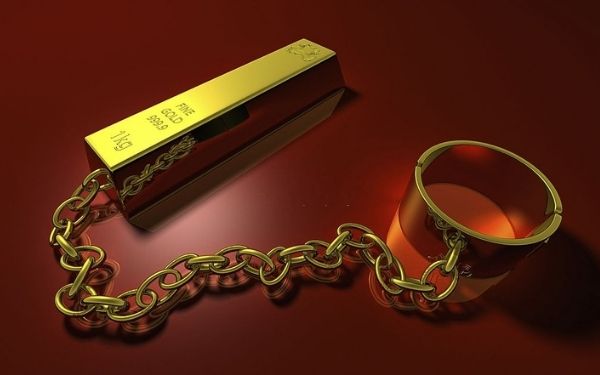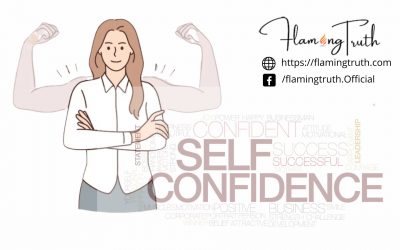The necessity of a “credit only” society has arrived. Nevertheless, could common life be “destitute” totally?
Some time back, I composed an article on the deco modification of the latrine. In Europe, individuals frequently need to pay to utilize open latrines. I was astounded on a visit to England when, in a nation that offers thoroughly free open medical care, I needed to bobble in my pockets for coins just to take a “small.” (As the removal of pee is known in my nation of origin)
In the United States, this experience is obscure, in light of the fact that there was an effective, uncelebrated social development to nullify paid latrines. I called attention to in my article how brilliantly liberating it is not to need to consider cash when you go to the restroom. “Deco modifying” the restroom implies your relationship to the toilet is no longer value-based (I pay cash, I am allowed to pee). You simply go.
Open libraries work this way, as well, numerous parks and local groups of fire-fighters. You don’t need to pay per book at the library. You simply proceed to look at what you need. The local group of fire-fighters doesn’t send you a bill. It just goes to your home and puts the fire out. At a decent park, you simply go to the recreation center, instead of buying a ticket.
Medical care in the United States, in contrast to medical services in Britain, does not work along these lines. You do not just go to your primary care physician, are treated, and leave. There is cash included. You should pay for what you get, and regularly you should invest energy haggling with your insurance agency to get them to pay. Accordingly, an individual’s contemplating their clinical consideration is bound up with pondering their own accounts. They should pose inquiries like: is it worth setting off to a specialist over this, or would i be able to manage the cost of an emergency vehicle?
We underestimate this, yet it’s useful to consider how ludicrous this would appear in the event that it was the manner by which we ran fire insurance. On the off chance that it cost $50,000 to have a house fire put out, individuals would delay to call firefighters. They would most likely make a decent attempt to extinguish fires themselves, and numerous individuals absent in cash would kick the bucket attempting to maintain a strategic distance from a costly bill. This is a valid justification why local groups of fire fighters no longer work on the private model that they used to, and are currently a free-at-purpose of-utilization administration.
Moderates some of the time bring up that when we lefties state we need something to be “free,” it is not generally free, since it must be paid for by the administration. This is right. It is not free, it is “free at purpose of utilization,” implying that it is financed out of an aggregate pool of riches instead of by people when they utilize the administration. A valid justification for making things free at purpose of utilization is that it makes them less distressing and individuals can zero in on satisfying their needs and wants as opposed to on pondering cash.
One explanation all-inclusive free school would be a great thing is that it would let imminent understudies consider the inquiry “What am I keen on examining?” as opposed to “What would i be able to bear to contemplate?”
There is something exceptionally engaging about not halting the entire day to settle on miniature level money related choices that remove time and vitality from what we are really attempting to do. (How often have you missed a transport or train since you were all the while tinkering with the ticket machine?) The equivalent is valid in each relationship of trade.
At the point when I go to a café, the time I spend having my card swiped and entering the tip and sign the thing, and the time the barista spends preparing my installment as opposed to making espresso, is useless. It is an “exchange cost.” It is a necessary chore.
I discover eateries gigantically upsetting spot because of how much time I spend pondering The Check. Have they brought it yet? Is it accurate to say that we are going to part it? Gracious God, imagine a scenario where my card is dismissed. What amount of a tip do I leave on this? Occasionally you have to leave, yet you cannot leave, due to The Check. In a theoretical “free café,” you would essentially go, eat, and leave. Nevertheless, cafés are not free at purpose of utilization.
At the point when I composed my article about deco modifying latrines, I brought up what a vexatious annoyance it is to continually be going through the cycle of trade. Placing coins in the entryway of a latrine is crazy, and as the American model shows, pointless. You could simply let individuals stroll in. However, a techno-libertarian type tested me on this. He (you knew the sexual orientation when I said techno-libertarian) said Well, Actually innovation is taking us toward a “credit only” society.
Installments are getting simpler and simpler. Truly, mishandling with coins is silly. So is swiping a Visa and punch in your PIN. Be that as it may, installments are getting swifter with things like Apple Pay. We can envision that soon, you would essentially have the option to tap your telephone on the washroom entryway and be allowed in, the cash deducted from your record. Pay latrines could subsequently be helpful to pay for.
Presently, my libertarian confidant (they disdain when you consider them that) did not sell me on the excellencies of paid latrines. He did; notwithstanding, make me consider the expanding simplicity of installments. I got my first cell phone as of late, subsequent to waiting for a long time and I was quickly dazzled with the fact that it was so natural to pay for things. I don’t need to place in my charge card data unfailingly.
I essentially take a gander at the telephone, it recognizes my face (frightening and troubling, yet helpful), and I press, “pay.” Use Door Dash or Lift and you don’t need to enter any bank data after the first run through.
Truth be told, insofar as you most likely are aware you have a lot of cash in your financial balance, you simply pick what you need and request it. You don’t consider the cash. The costs are not altering your perspective, since you know can bear the cost of whatever you pick. Hence: for you, the individual who can manage the cost of any of the different alternatives among which you are picking, the costs are practically unnecessary data. You need them there to ensure you are not being bilked. Yet, they nearly stop to issue.
I have a totally different relationship with cash since I am not poor. (I was just ever understudy poor, which means I had no cash, not destitution poor.) When I go to the market, I essentially select the things I need and take them to the checkout. I don’t take a gander at their costs, on the grounds that regardless of whether one yogurt costs $2 and one expenses $4, the distinction doesn’t have any kind of effect to me, as I can manage the cost of either yogurt and like to pick the most fulfilling one over investing my energy doing a psychological money saving advantage examination of whether the extra $2 will bring $2 extra of fulfillment. It won’t, yet I likewise couldn’t care less, in light of the fact that what gives me bunches of fulfillment is picking yogurts absolutely out of want.
At the checkout, they ring me up, I see the cost, and they give me a receipt. I discard the receipt. Then I look at the cost, yet generally, it’s some place around what I anticipated that it should be. Yet, I don’t need to consider the particular sum definitely, on the grounds that I realize that I am just actually purchasing “a sensible measure of staple goods” and that my ledger can oblige “a sensible measure of food supplies,” so there will never be going to be an issue.
At the point when I had no cash, things were unique. I was considering each extra banana and whether I could manage the cost of it. Cash was the focal thing I contemplated at the market, since when you have little of it, you have to settle on choices like “is the more costly yogurt justified, despite all the trouble?”
Actually, I am fortunate. I have a stable employment that covers my bills. So they are all on auto-pay. I do not consider my bills. I attempt to ration power and to keep the forced air system at a sensible temperature and not gather a goliath information bill on the telephone, yet insofar as I am sensible and reasonable I do not have to think without a doubt. I am seeing increasingly more that, given credit only exchange innovation; cash is playing a littler and littler function in my regular day-to-day existence.
At the point when I request things on the web, the cost is useful to disclose to me that they are not nonsensically costly. There are $800 table lights and I would prefer not to arrange one of those coincidentally. Yet, on the off chance that I turn on a channel that says, “just give me table lights under $150,” the varieties inside the class don’t really make a difference to me. On the off chance that it’s in my financial plan, I can have it.
I think a major aspect of the fantasy that numerous communists have is to be delivered from having a day-to-day existence that is governed by cash. The primary goal, obviously, is the cancellation of class and ensuring each individual is free. However, there is a sure abhorrence for trade connections largely. We need an existence where you give somebody something since you might want him to have it, not because you are hoping to get something out of them. John Marry, in News from Nowhere, delineates a perfect world wherein an artisan goes through months creating a flawlessly painted smoking line, just to part with it to somebody who saw it and respected it. For Morris, there was something excellent in this. On the off chance that you need it, it is yours, no inquiries posed.
The Beauty Standards in Pakistan Nowadays —- Read More















0 Comments